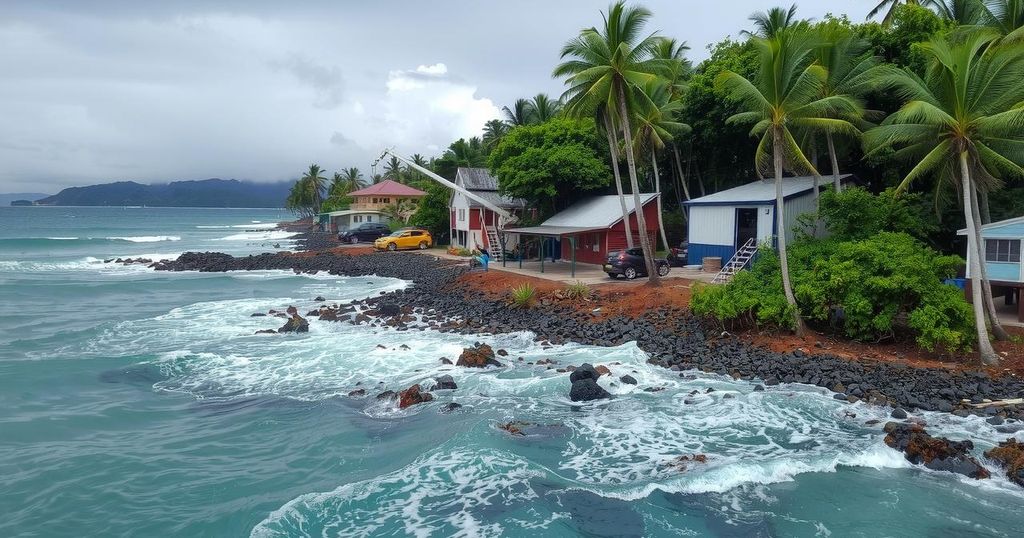Mayotte Island Faces Long Road to Recovery After Cyclone Chido’s Devastation

Mayotte Island continues to struggle in the wake of Cyclone Chido, which has led to widespread devastation, overwhelming healthcare systems, and raising concerns over fatalities. The impoverished region faces infrastructural challenges that hamper effective relief efforts, while expressions of sympathy and prayers from global leaders highlight the island’s dire situation. Immediate humanitarian assistance is crucial to alleviate suffering and support recovery.
In the aftermath of Cyclone Chido, the worst storm to hit Mayotte Island in nearly a century, recovery efforts are still ongoing as the French Indian Ocean territory grapples with massive devastation. Hospitals are inundated with patients suffering from injuries, dehydration, malnutrition, and various diseases, exacerbating an already strained healthcare system. With entire neighborhoods obliterated and a significant number of residents failing to heed evacuation warnings, fears persist regarding the potential for the death toll to escalate into the hundreds or thousands.
Mayotte, recognized as the poorest overseas region of France and the European Union, has long contended with systemic neglect and inadequate infrastructure, leaving its population of approximately 90,000 ill-prepared for such a catastrophic event. Cyclone Chido has not only worsened these pre-existing challenges but has also led to widespread skepticism among residents regarding the government’s capacity to provide timely aid. The island’s predominantly Muslim population, which includes a notable Shia community and a minority of Christians comprising 3%, has suffered tremendous losses and devastation, prompting expressions of sympathy from global leaders, including Pope Francis, who extended his prayers for the victims.
In a public address, Grand Ayatollah Sayyed Sadiq al-Husseini al-Shirazi conveyed his heartfelt condolences, praying for the deceased and urging believers to mobilize resources to assist those affected. The calamity has particularly impacted members of the Ahlulbayt community, highlighting the urgent need for humanitarian support and comprehensive relief efforts. The Supreme Marja emphasized the collective responsibility of the global Muslim community to extend aid, reinforcing calls for charity and assistance in alleviating the profound hardships faced by the island’s beleaguered inhabitants.
Mayotte Island, situated in the Indian Ocean, is a French overseas territory marked by a predominantly Muslim population and acute economic challenges. With a significant proportion of its residents living in poverty, the island’s infrastructure suffers from longstanding neglect, rendering it vulnerable to natural disasters. The arrival of Cyclone Chido, characterized as the worst storm in nearly a century, underscored the precarious conditions and limited resources available for crisis response and recovery. The disaster has further highlighted the need for immediate humanitarian assistance and long-term support to enhance the island’s resilience to similar calamities in the future.
The devastation wrought by Cyclone Chido on Mayotte Island underscores the urgent need for robust humanitarian efforts to assist the affected communities. With many residents suffering from severe injuries and loss of shelter, global sympathy and local mobilization of resources are vital. Attention must also be directed towards addressing the systemic issues of poverty and infrastructure deficiencies to enhance the island’s resilience against future disasters. The actions taken in the coming days and months will be crucial in determining the recovery trajectory for this vulnerable region.
Original Source: shiawaves.com








